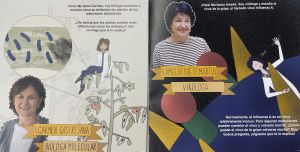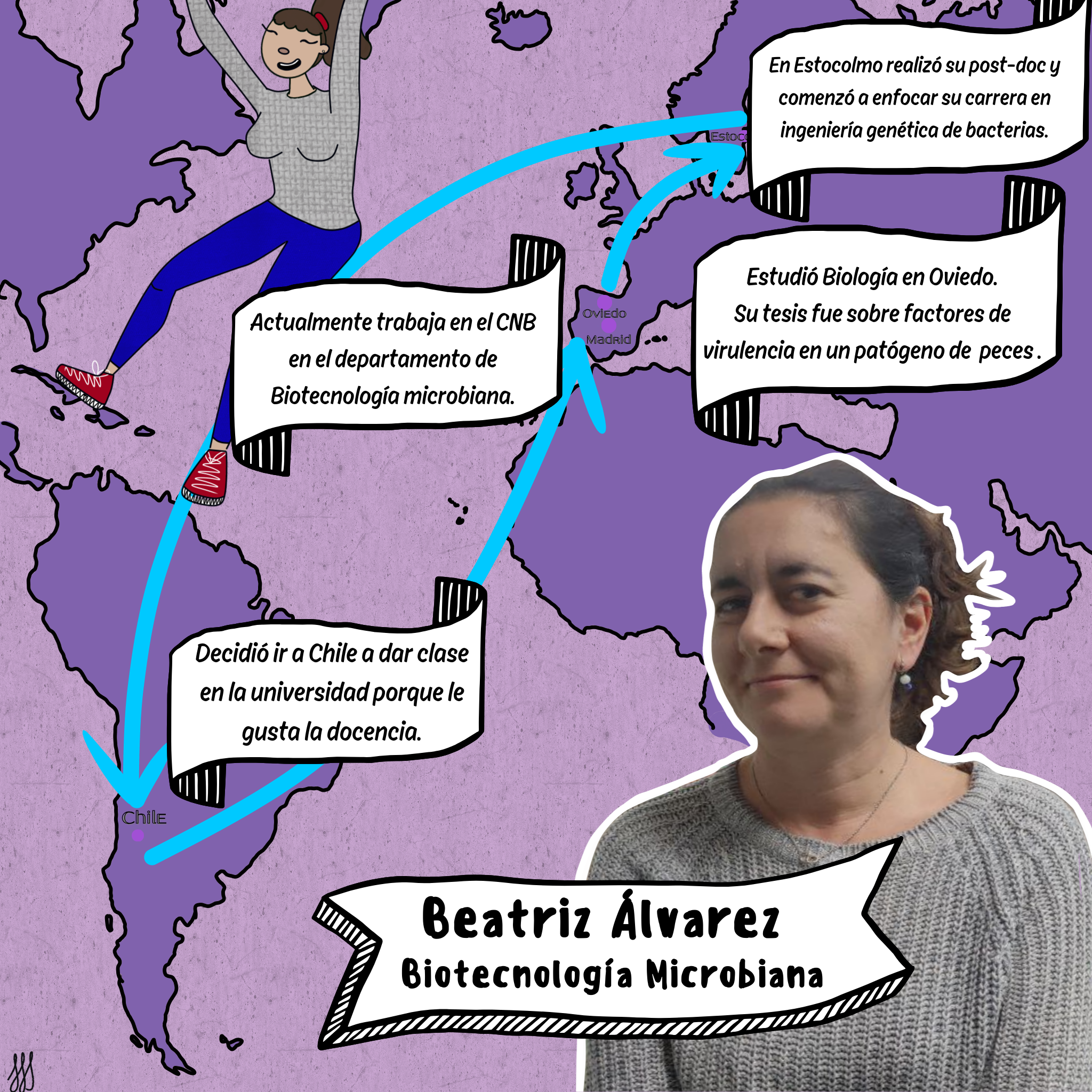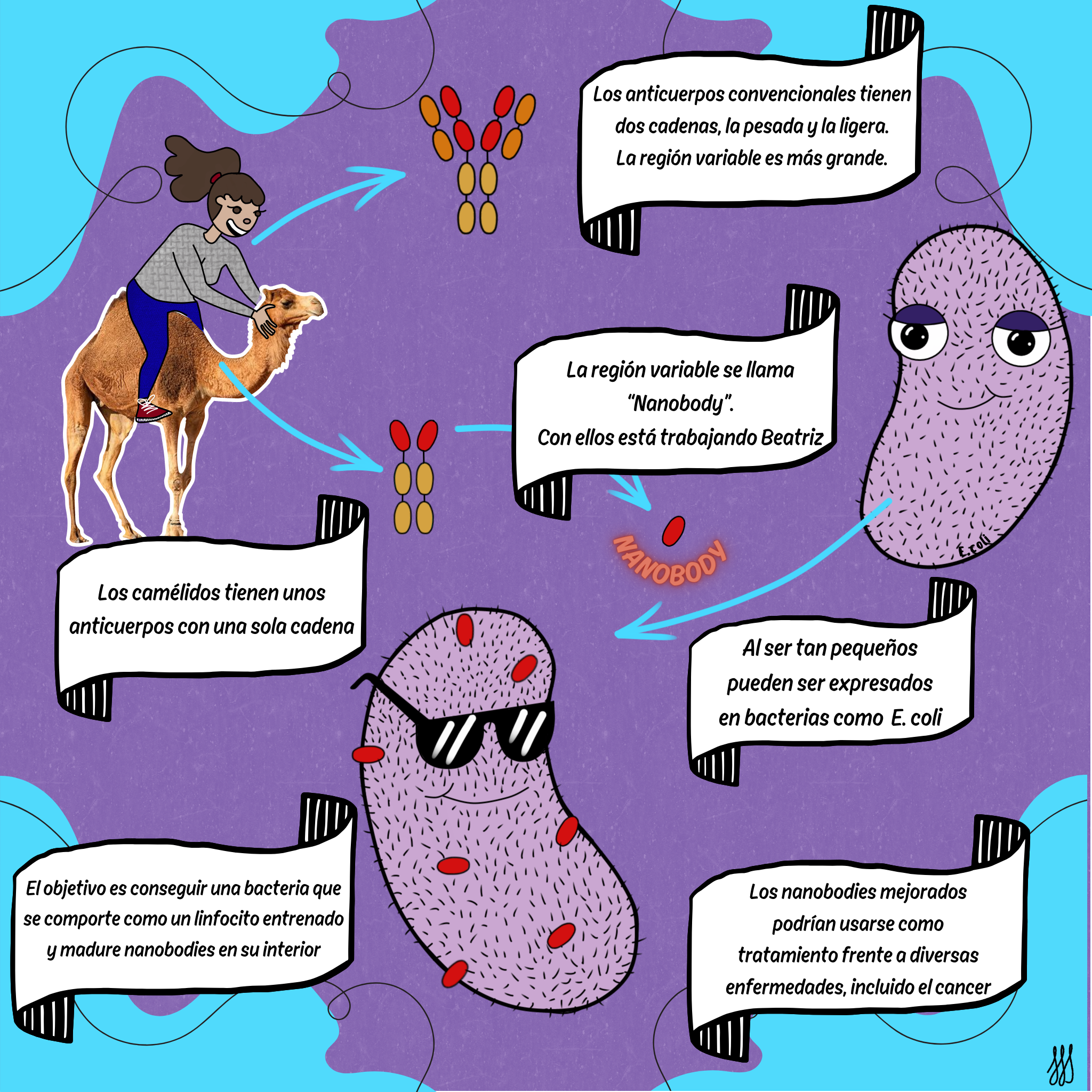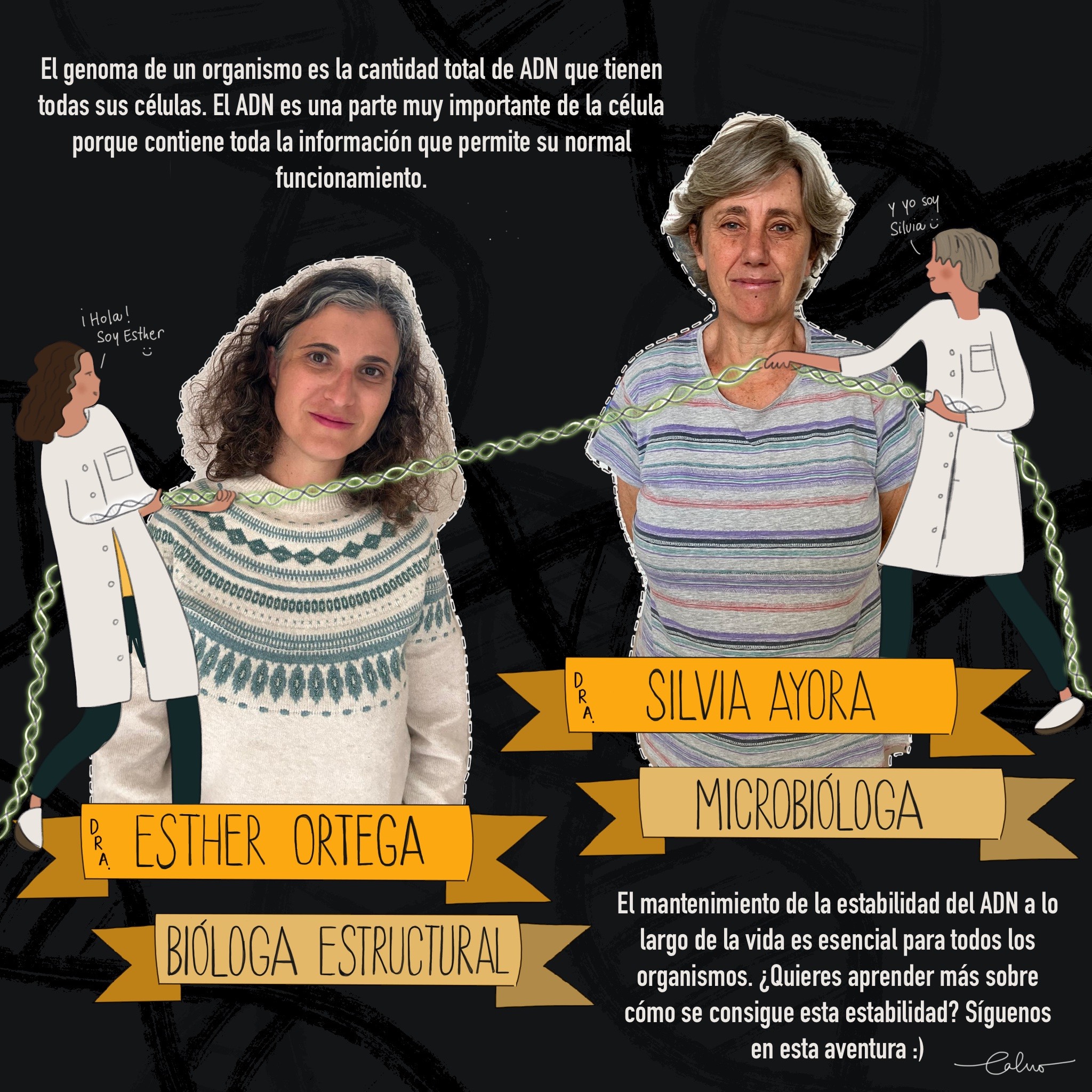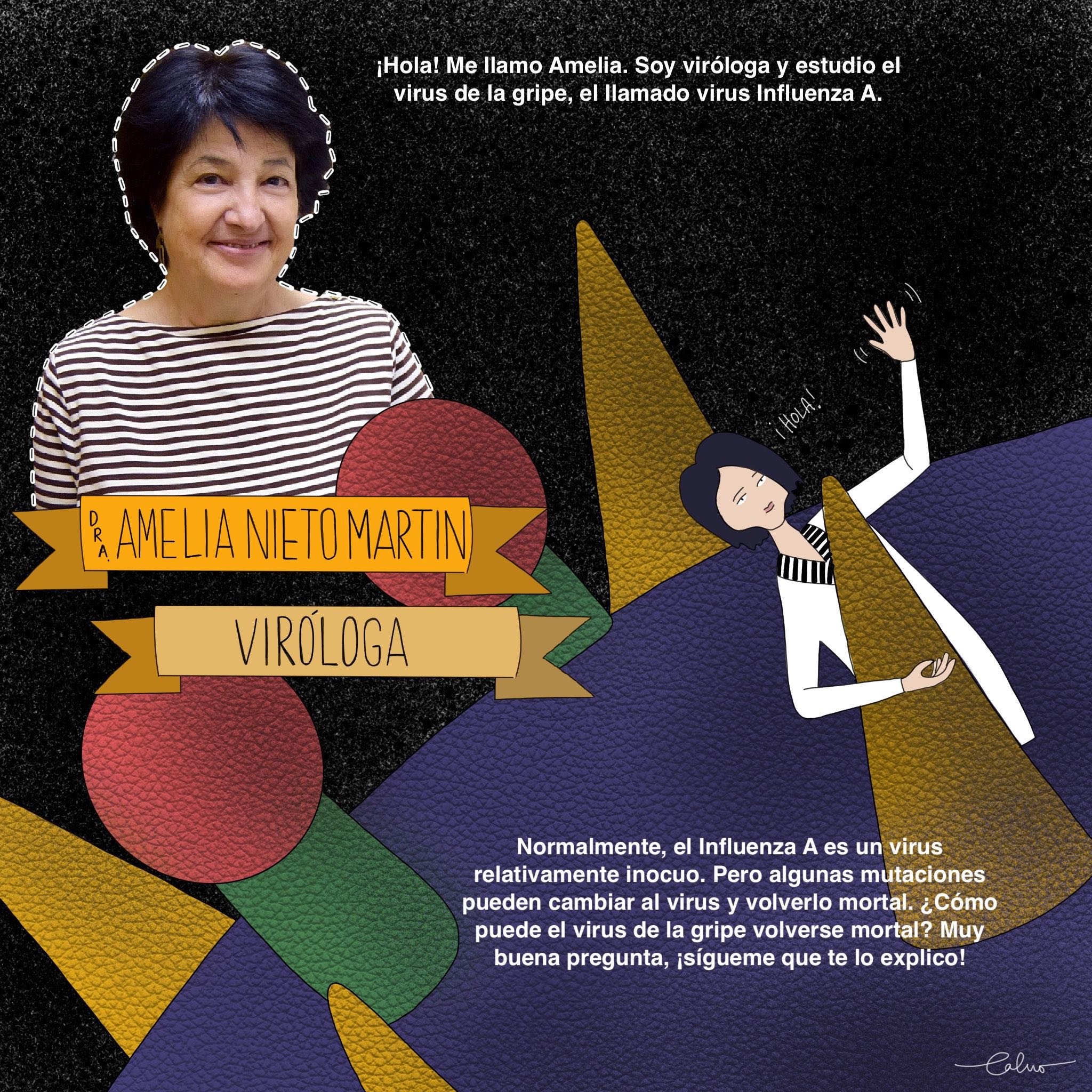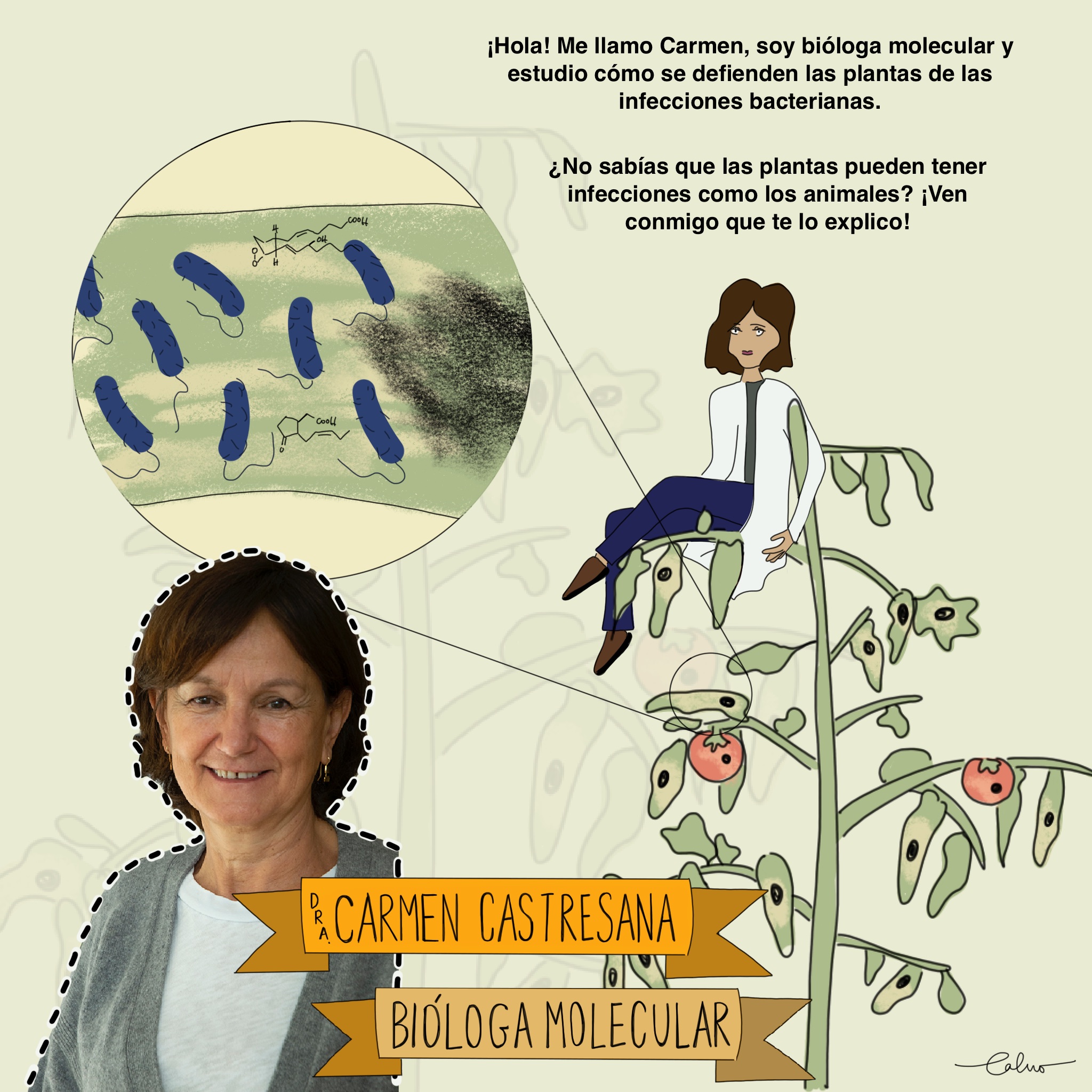Nuevas incorporaciones en el 2024
#8M - Día Internacional de la Mujer
Beatriz Álvarez, Investigadora Postdoc Senior en el grupo de “Ingeniería de bacterias para aplicaciones biomédicas”, ha sido dibujada por Sara González
Ana Oña, Doctora y Jefa del Servicio de Microscopía Óptica Avanzada, ha sido dibujada por Raquel Tenorio Vela
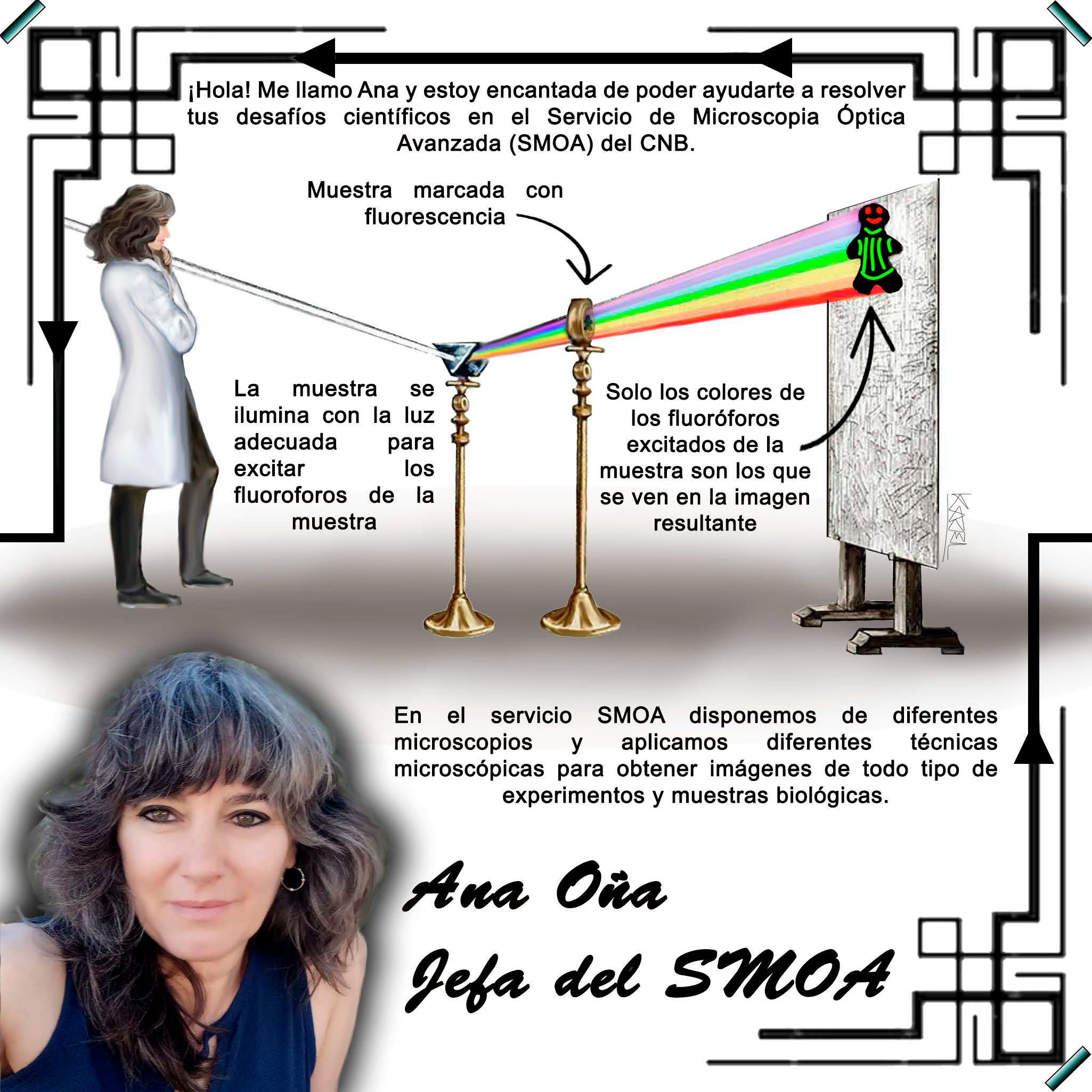
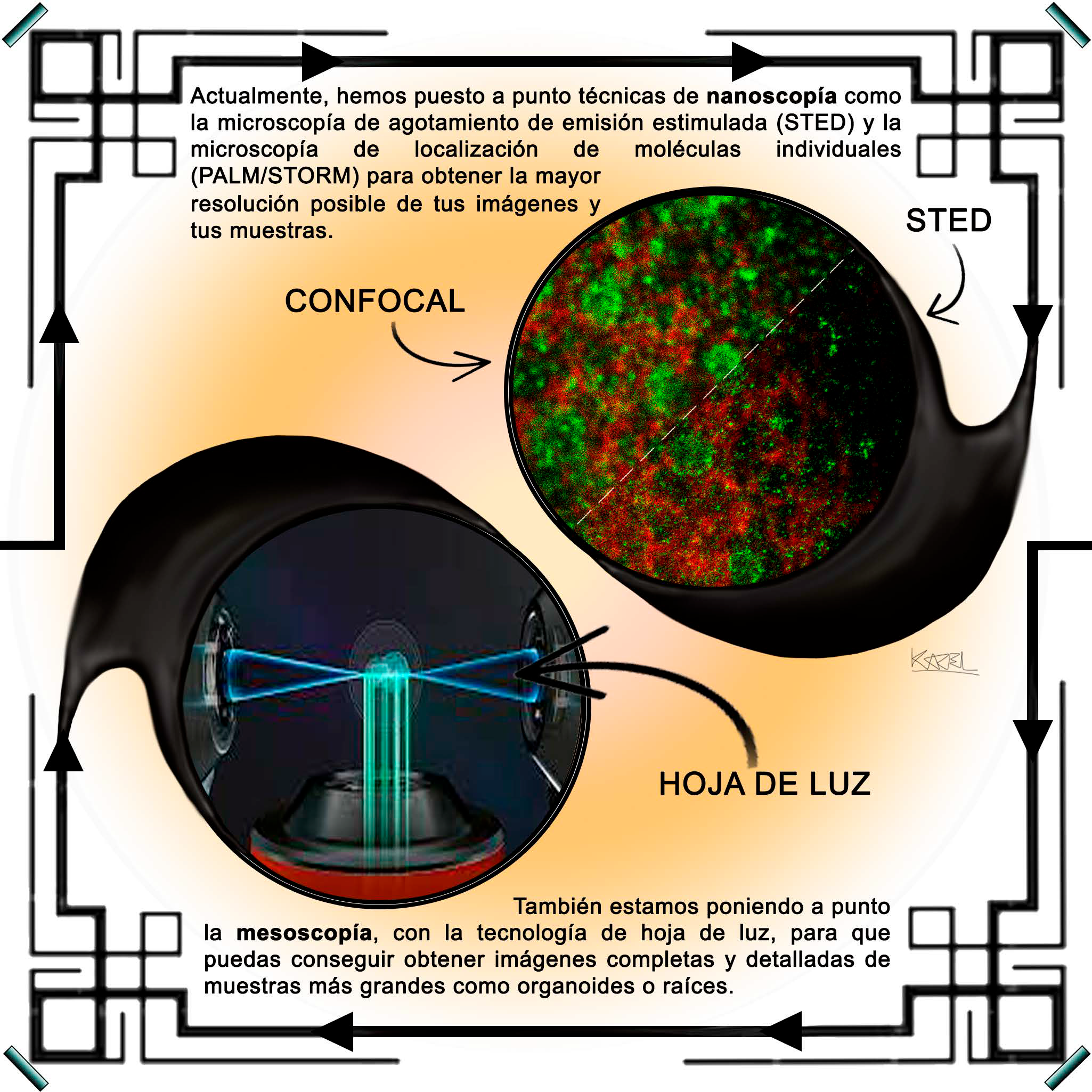
Yolanda Carrasco, Investigadora Principal del grupo de “Dinámica de los Linfocitos B”, ha sido dibujada por María Rueda
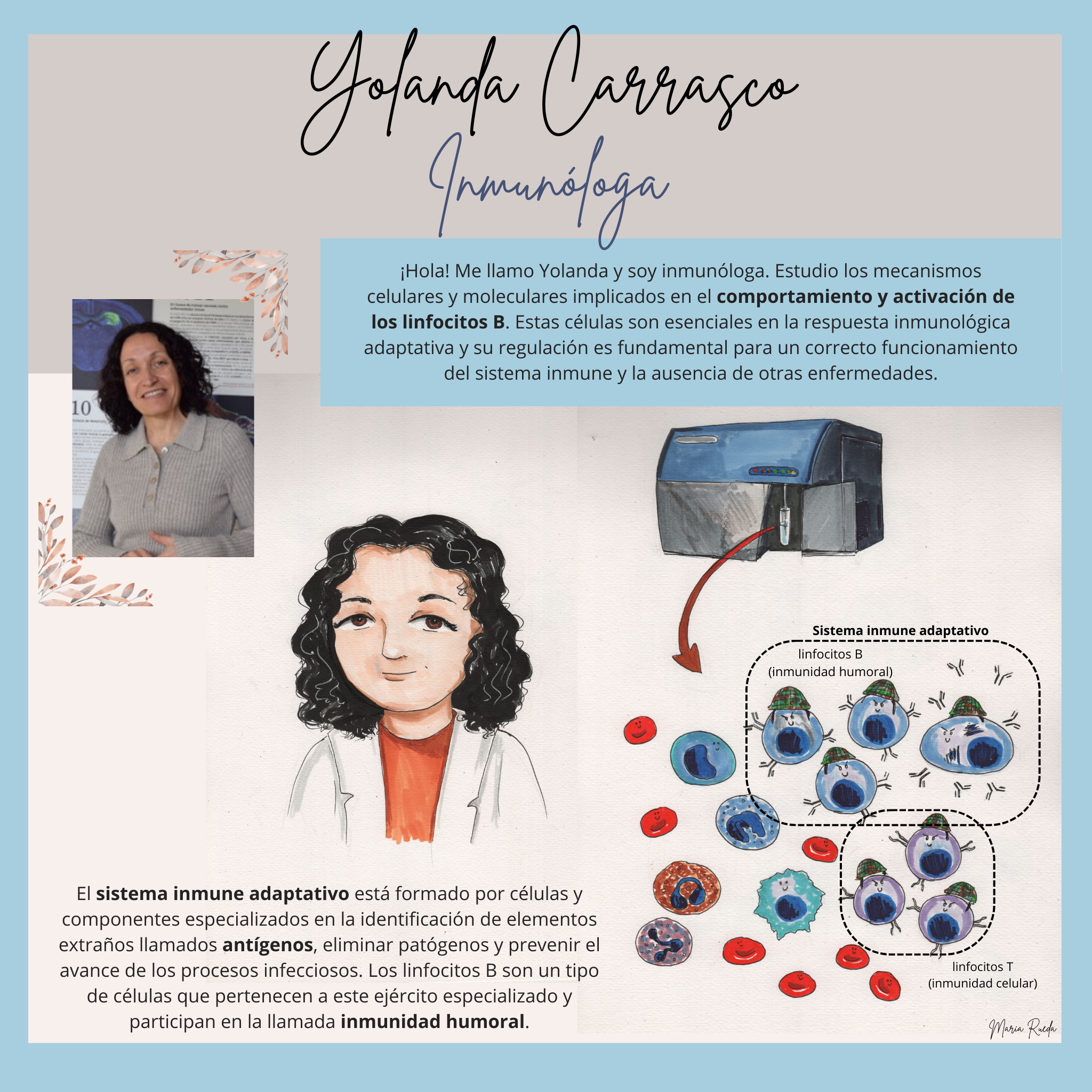
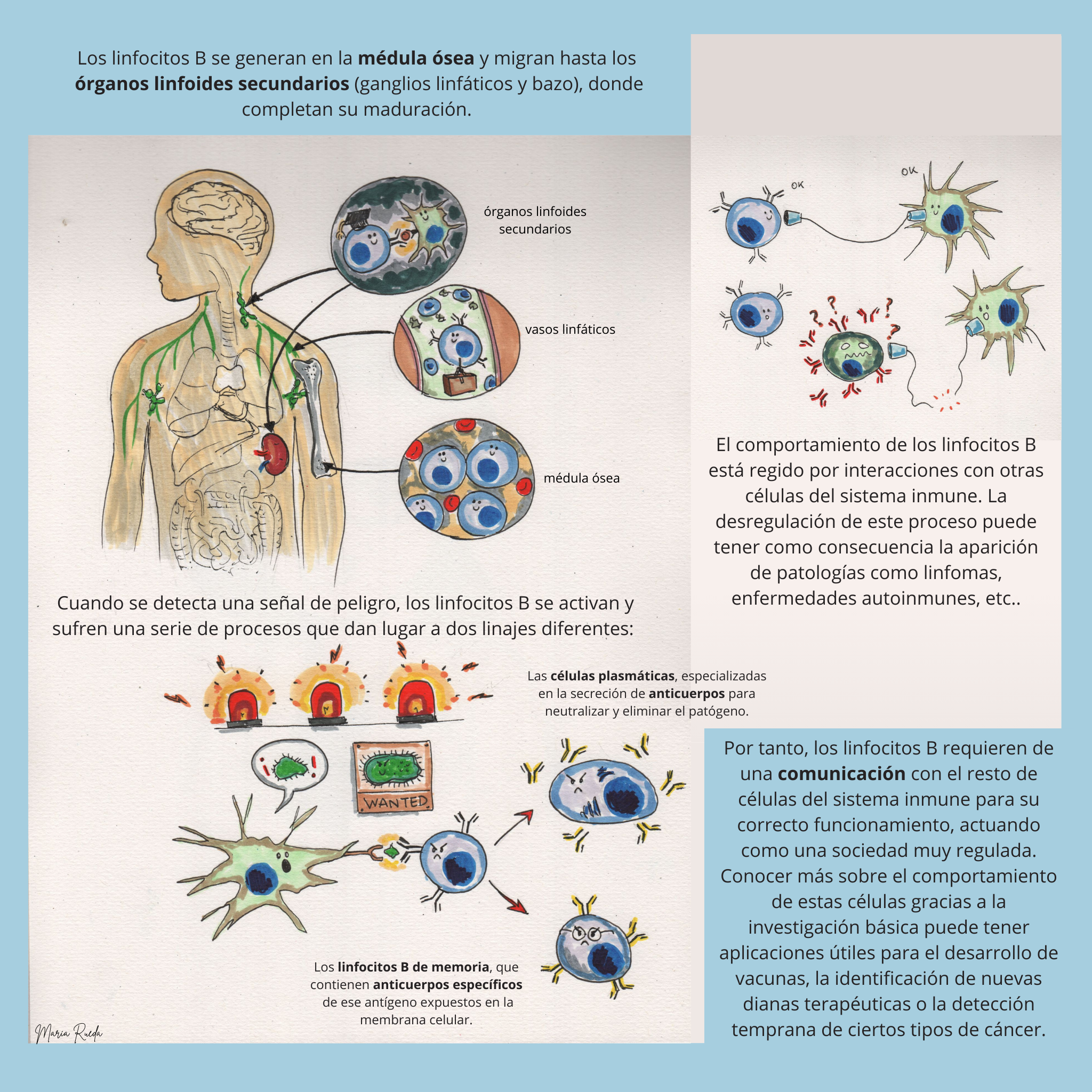
Sara Otaegui, Científica Predoctoral del grupo de “Determinantes físicos y estructurales del ensamblaje viral”, ha sido dibujada por Cristina Navarro
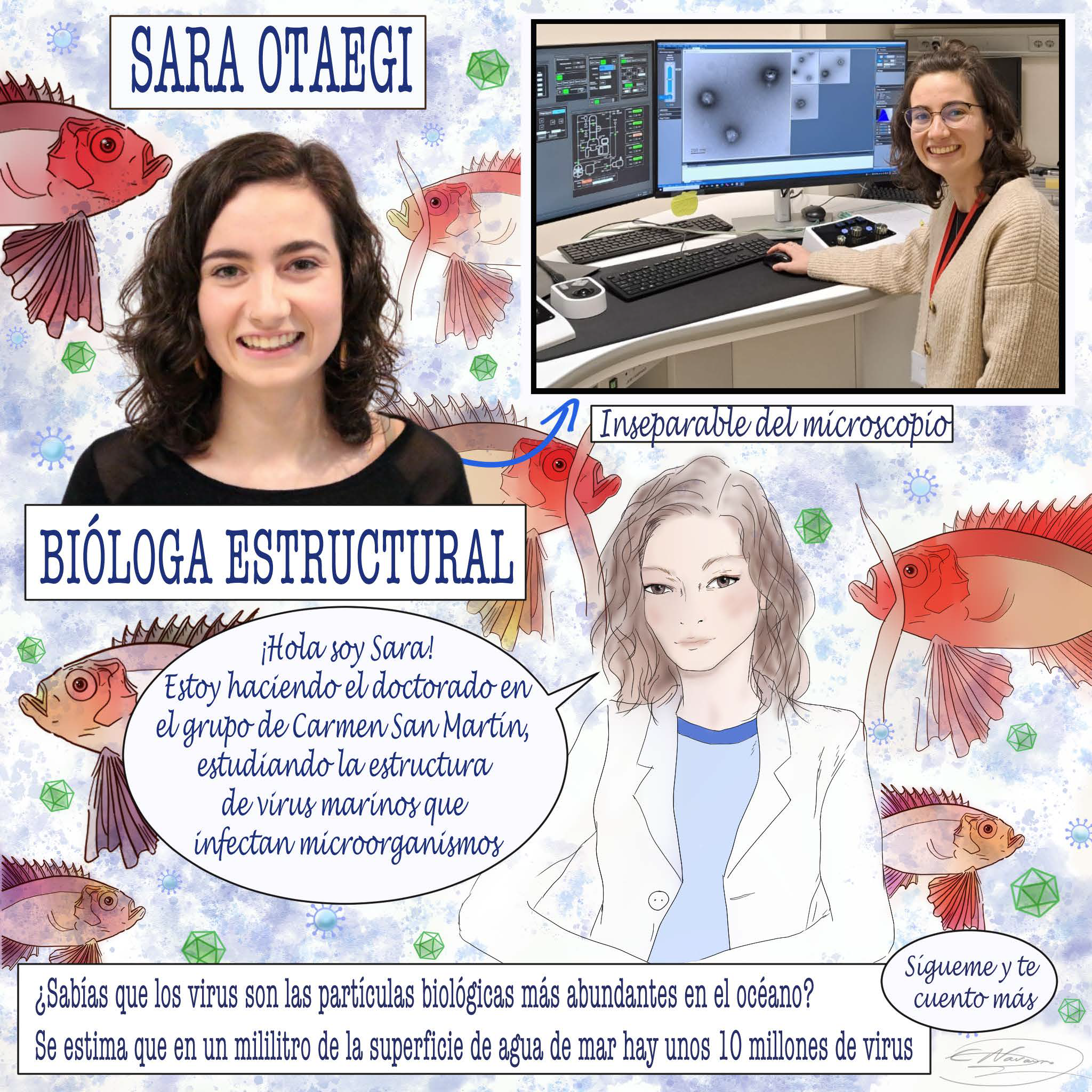
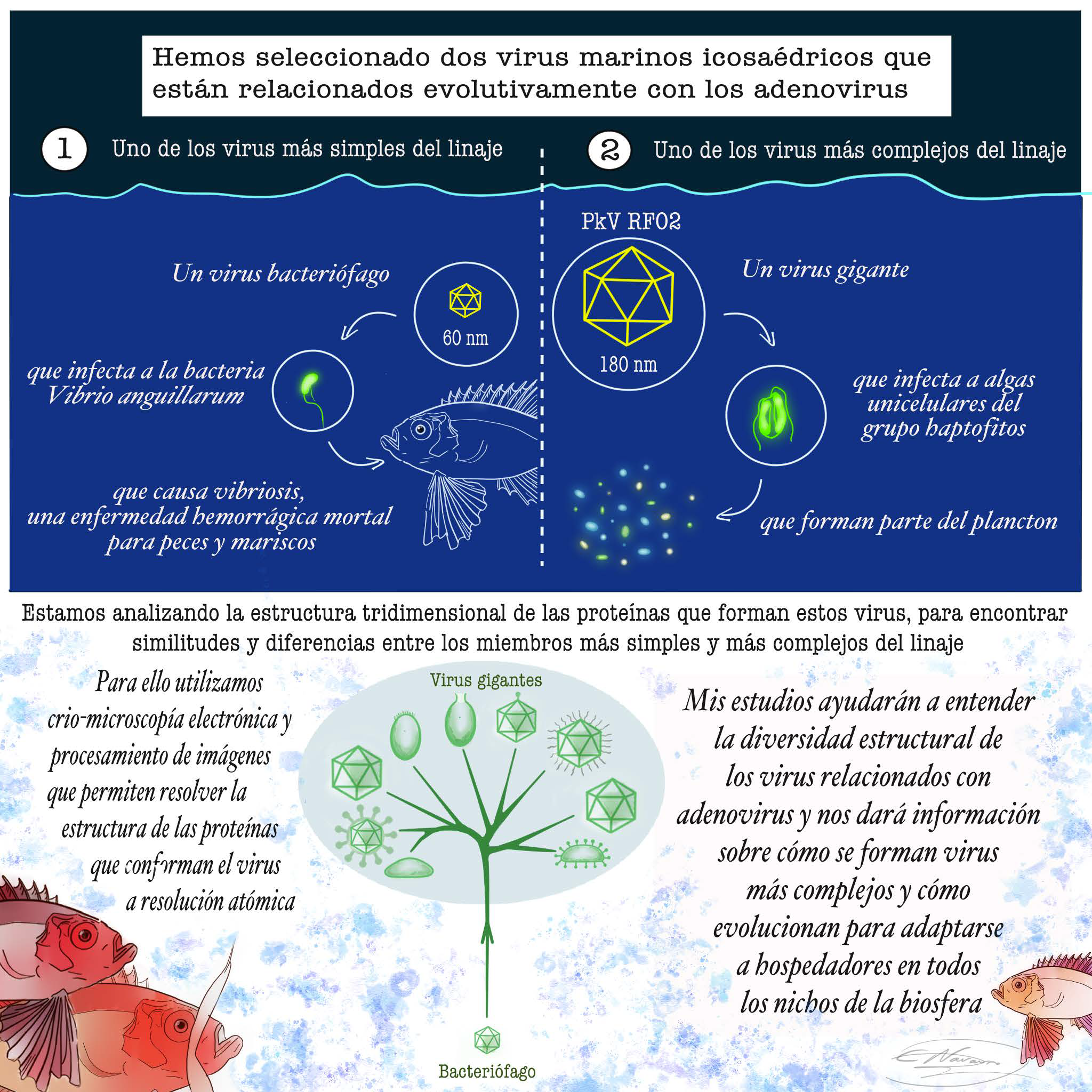
Sara Hernando-Amado, Científica Postdoctoral Senior del grupo de “Ecología y Evolución de la resistencia a los antibióticos”, ha sido dibujada por Elena Pares Guillén
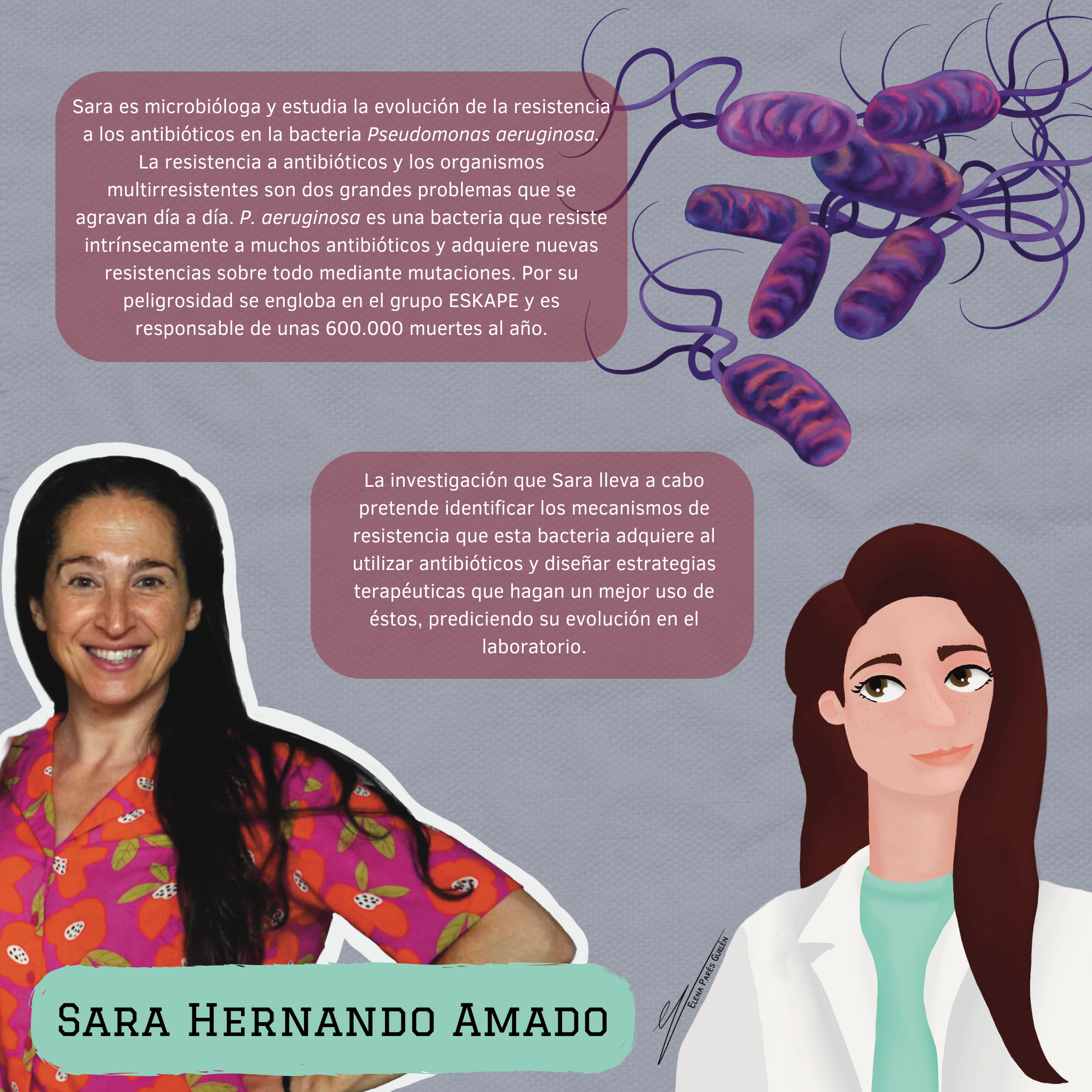
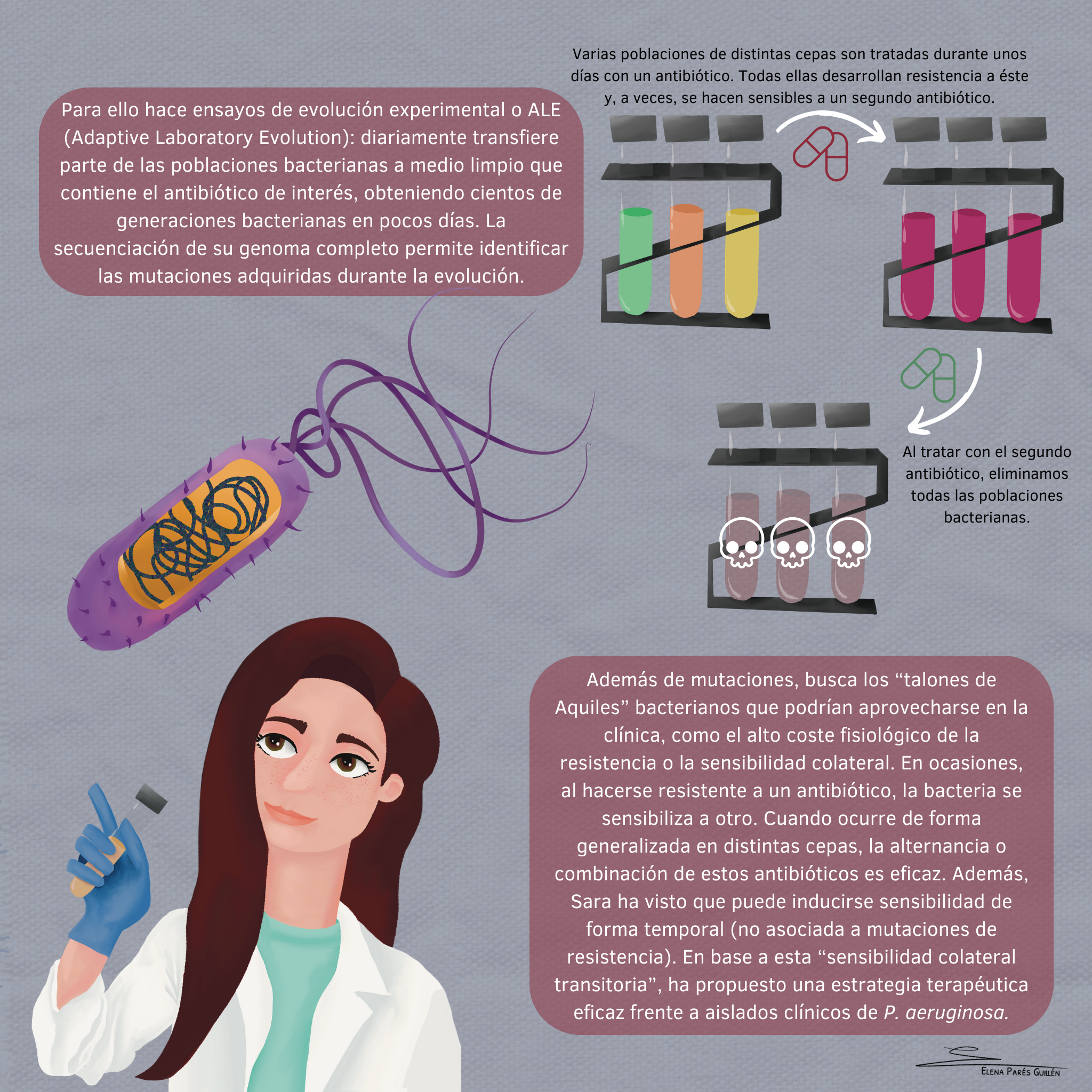
Carmen Majano, Científica Predoctoral en el grupo de “Estructura y Función de las Chaperonas Moleculares”, ha sido dibujada por Raquel Tenorio Vela
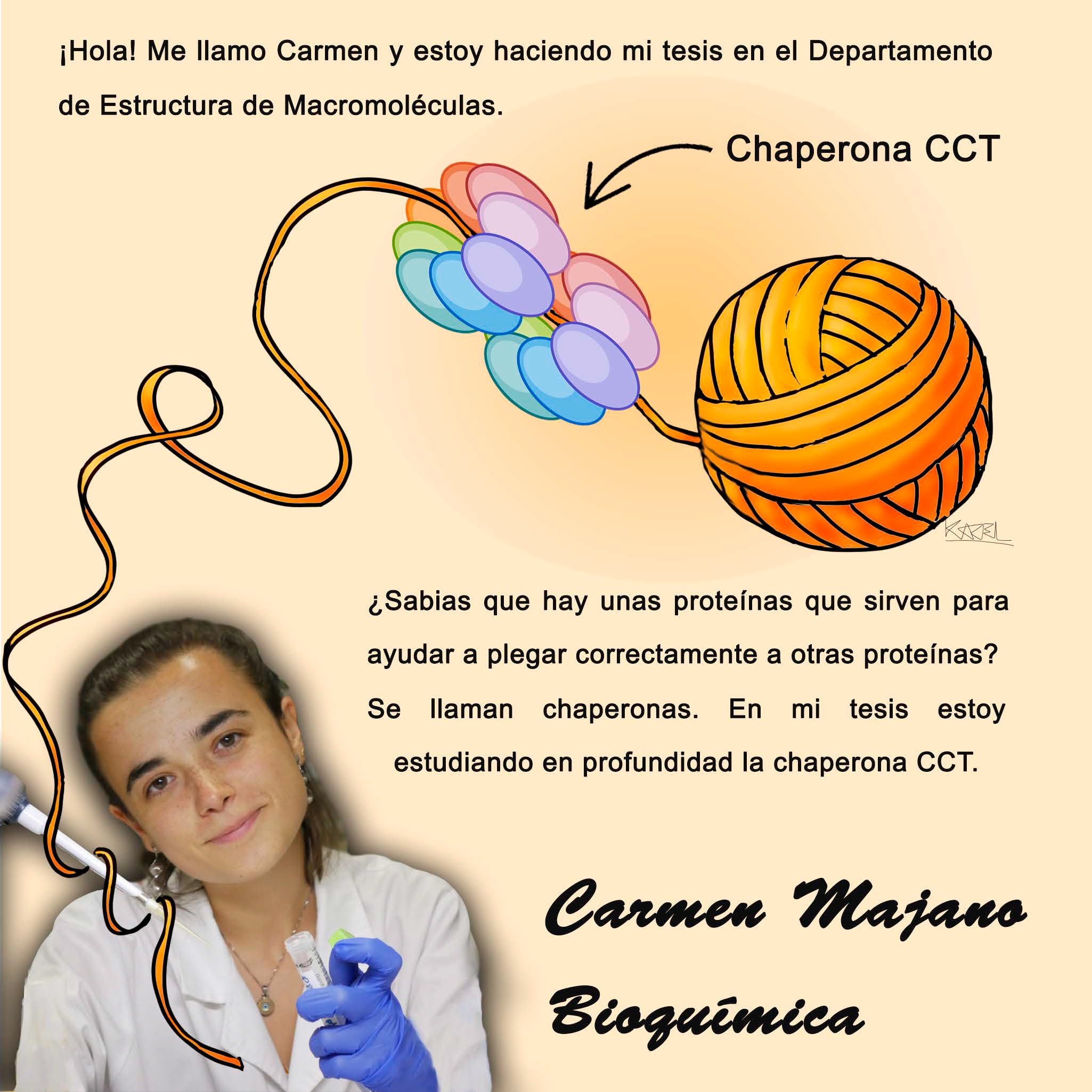
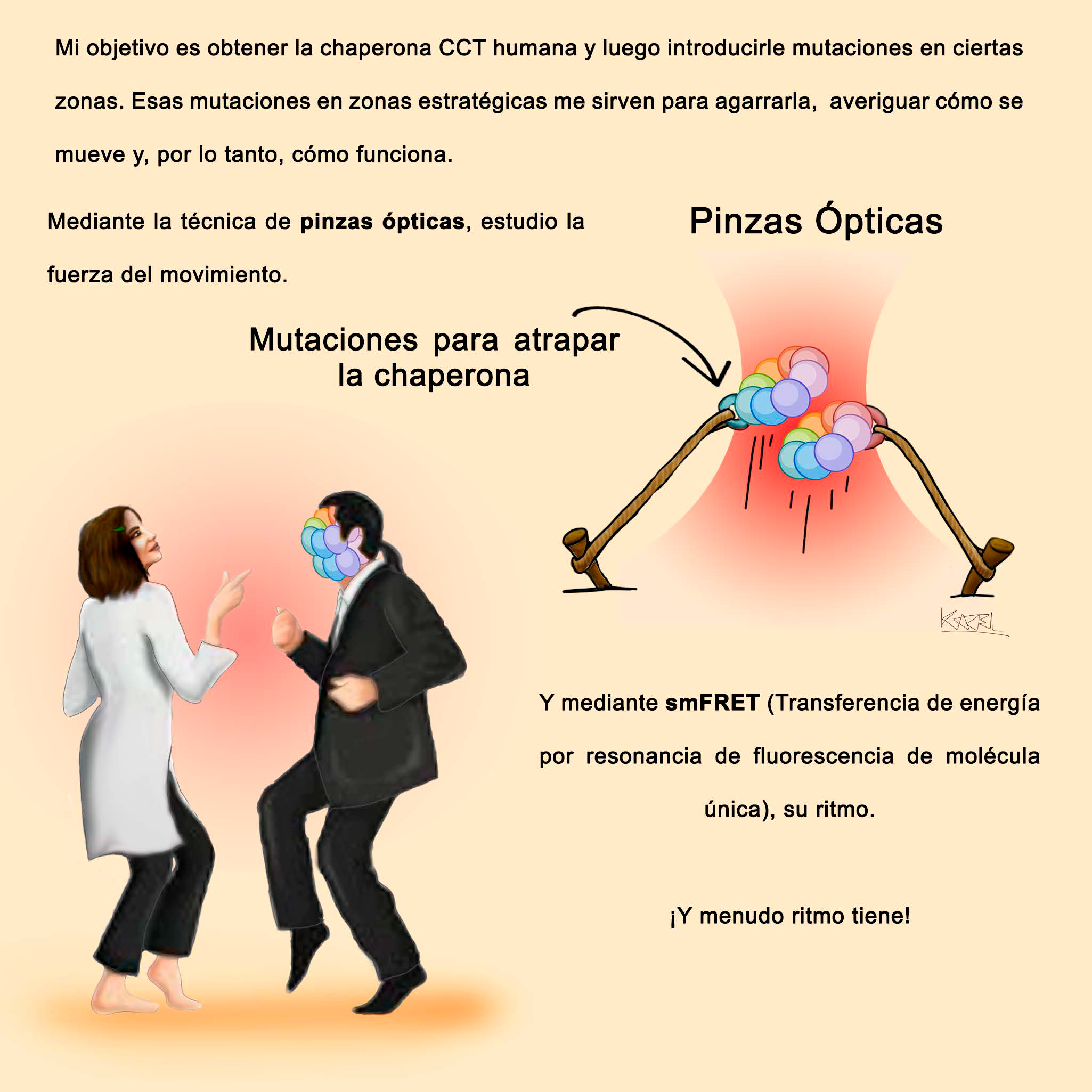
Inés Antón, Investigadora Principal del grupo de “Bases moleculares de la reorganización del citoesqueleto de actina en neuritogénesis, inflamación y metástasis”, ha sido dibujada por María Rueda

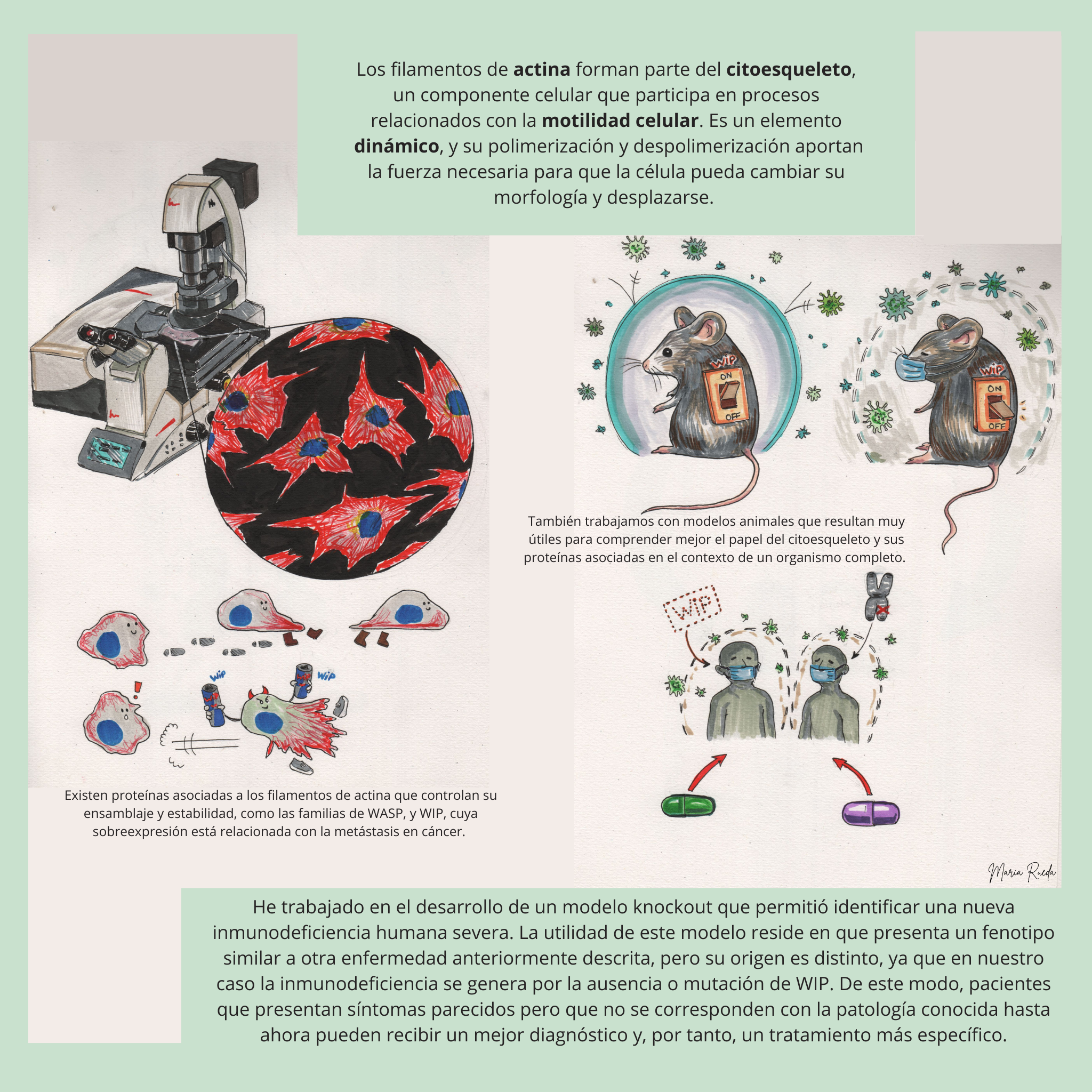
Gabriela Condezo, Científica Postdoctoral del grupo de “Determinantes físicos y estructurales del ensamblaje viral”, ha sido dibujada por Elena Pares Guillén
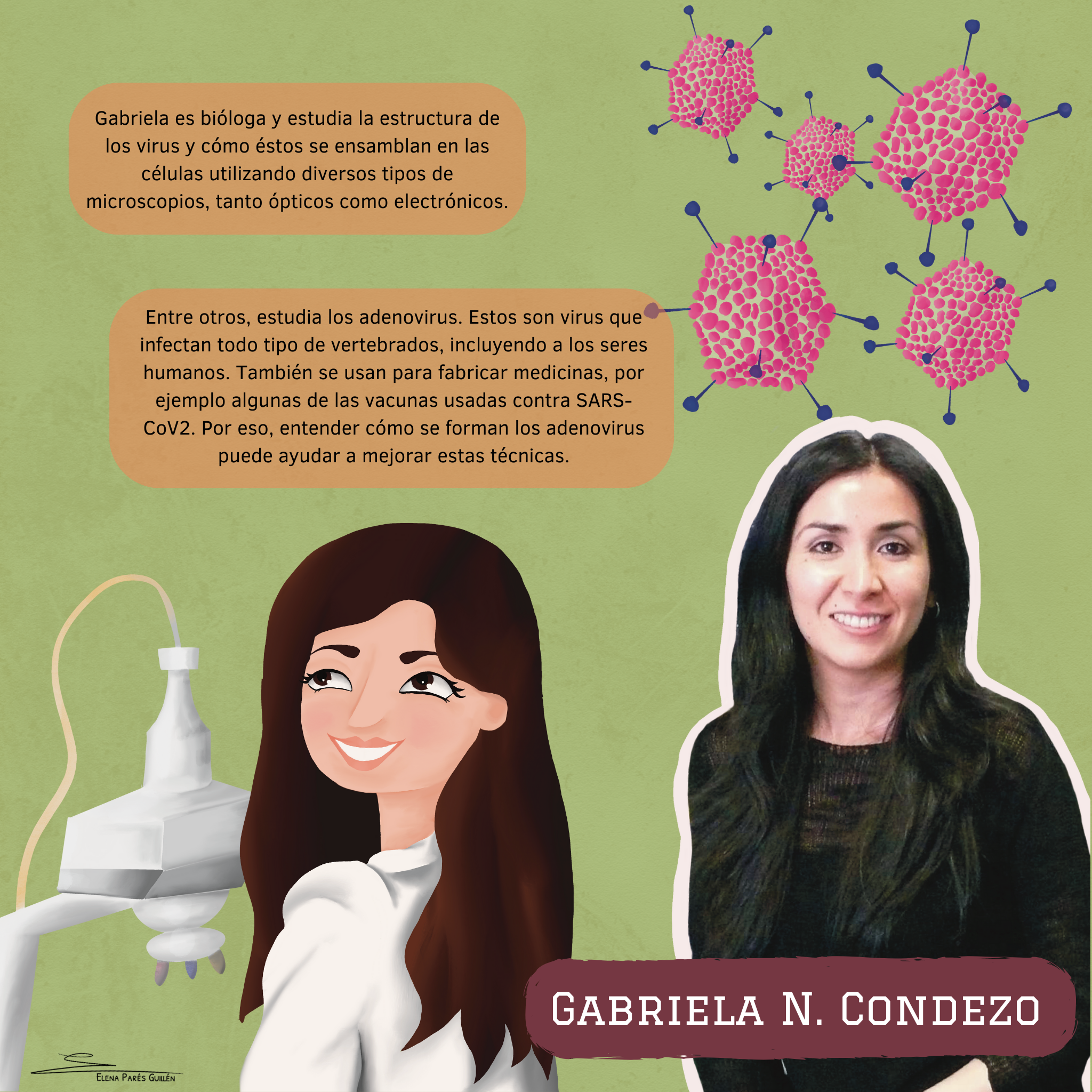
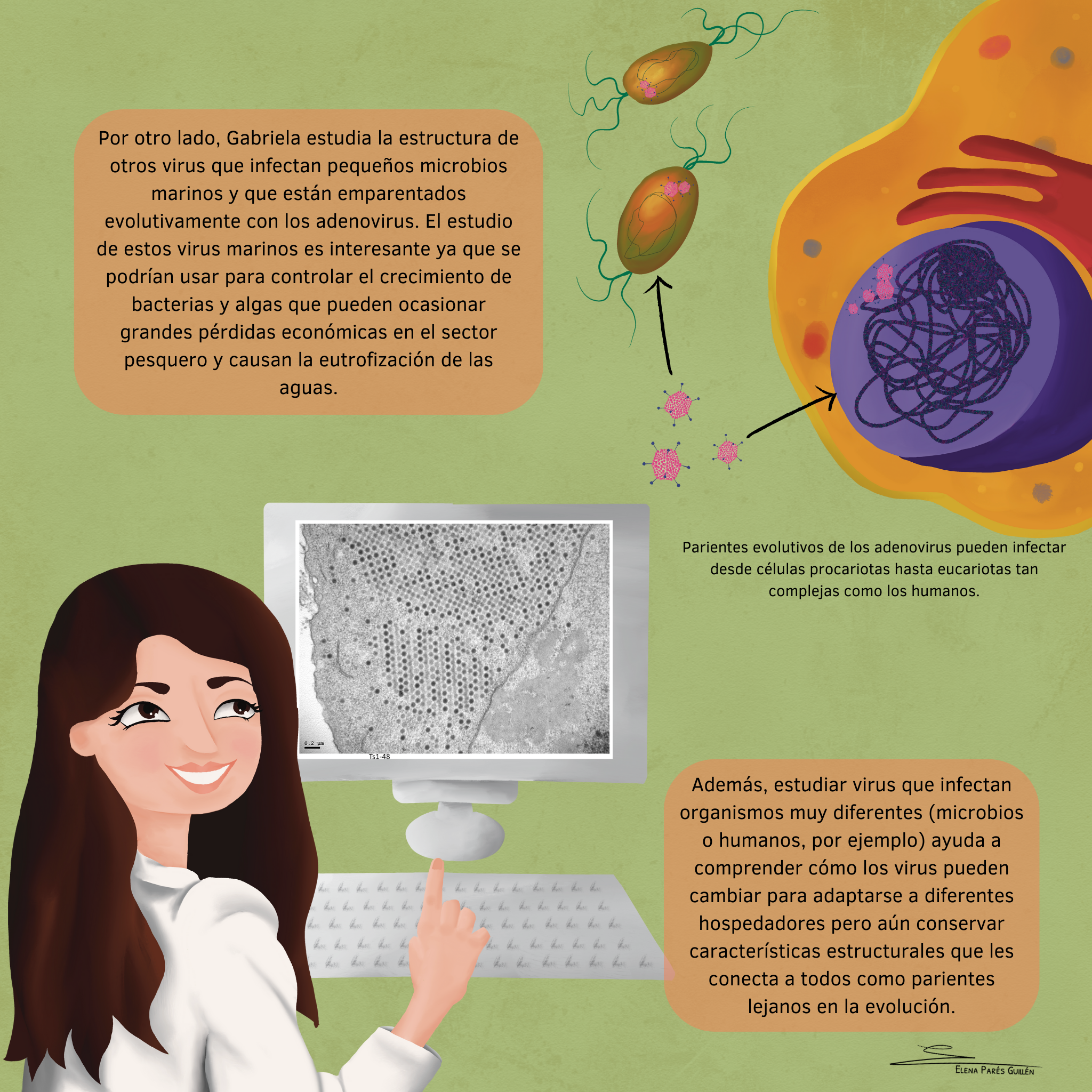
Pilar Cubas, Investigadora Principal del grupo de “Control genético de los patrones de ramificación en plantas”, ha sido dibujada por Cristina Navarro
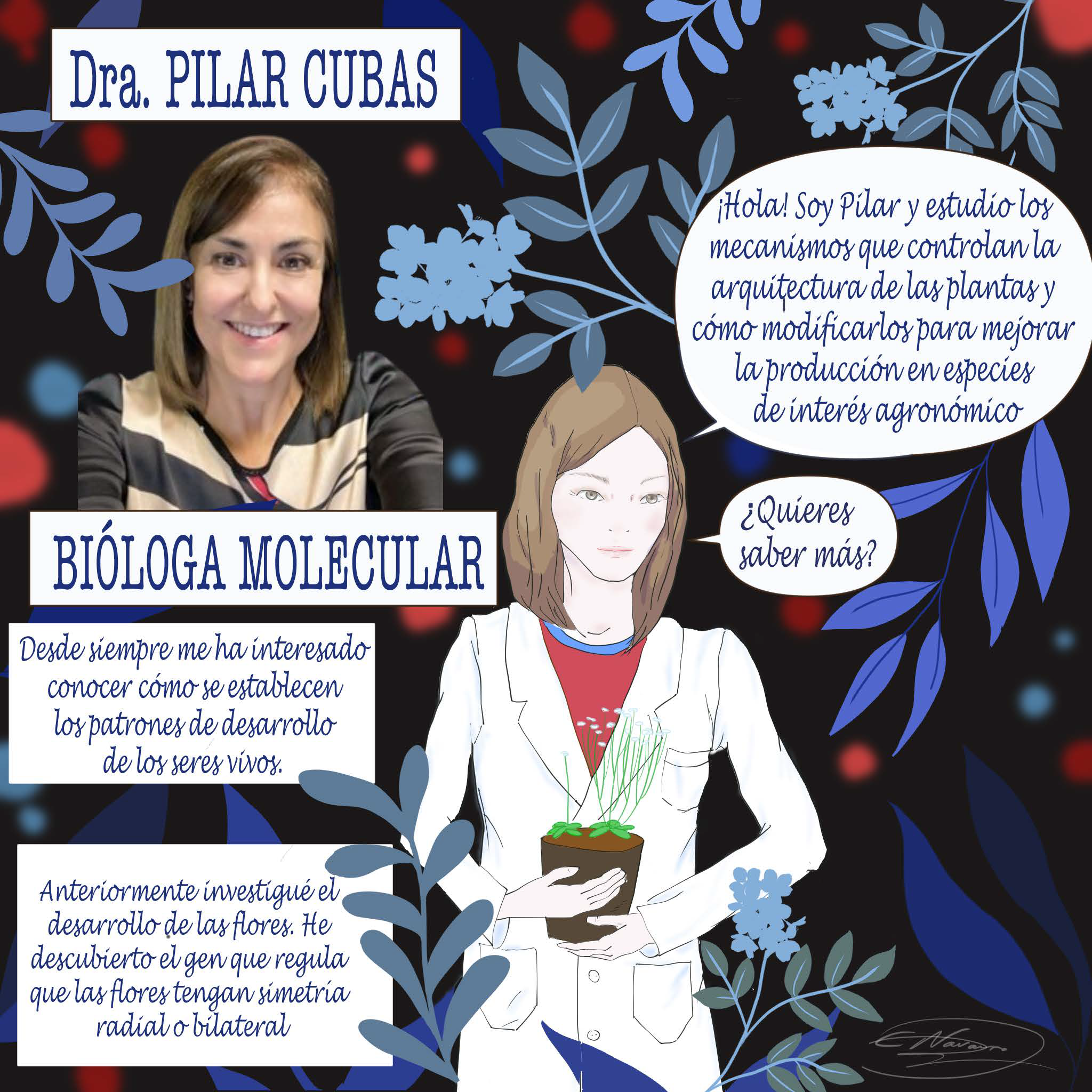
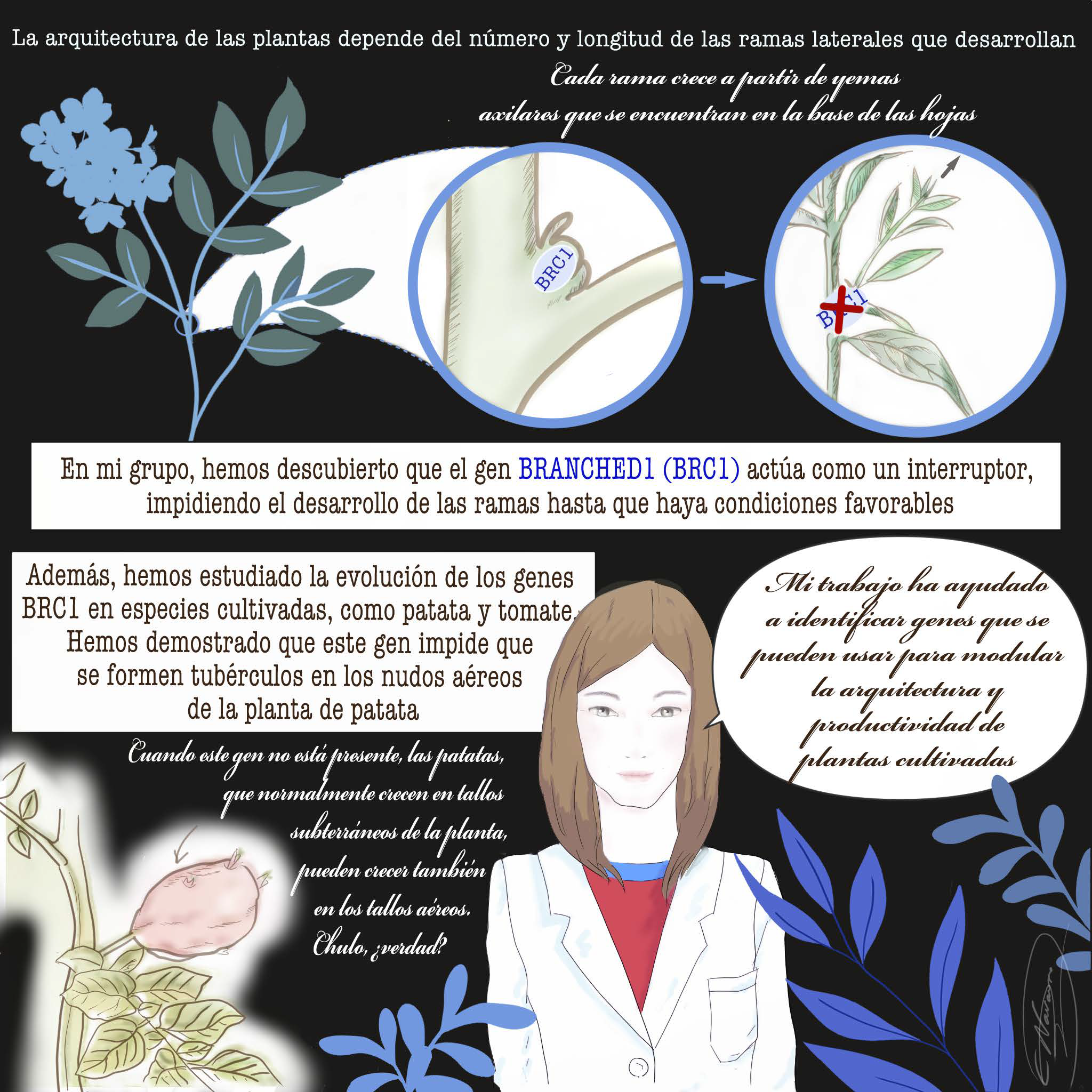
Ana Cuenda, Investigadora Principal del grupo "Proteina-kinasas activadas por estrés en inflamación y cáncer", ha sido dibujada por Alicia Calvo-Villamañán
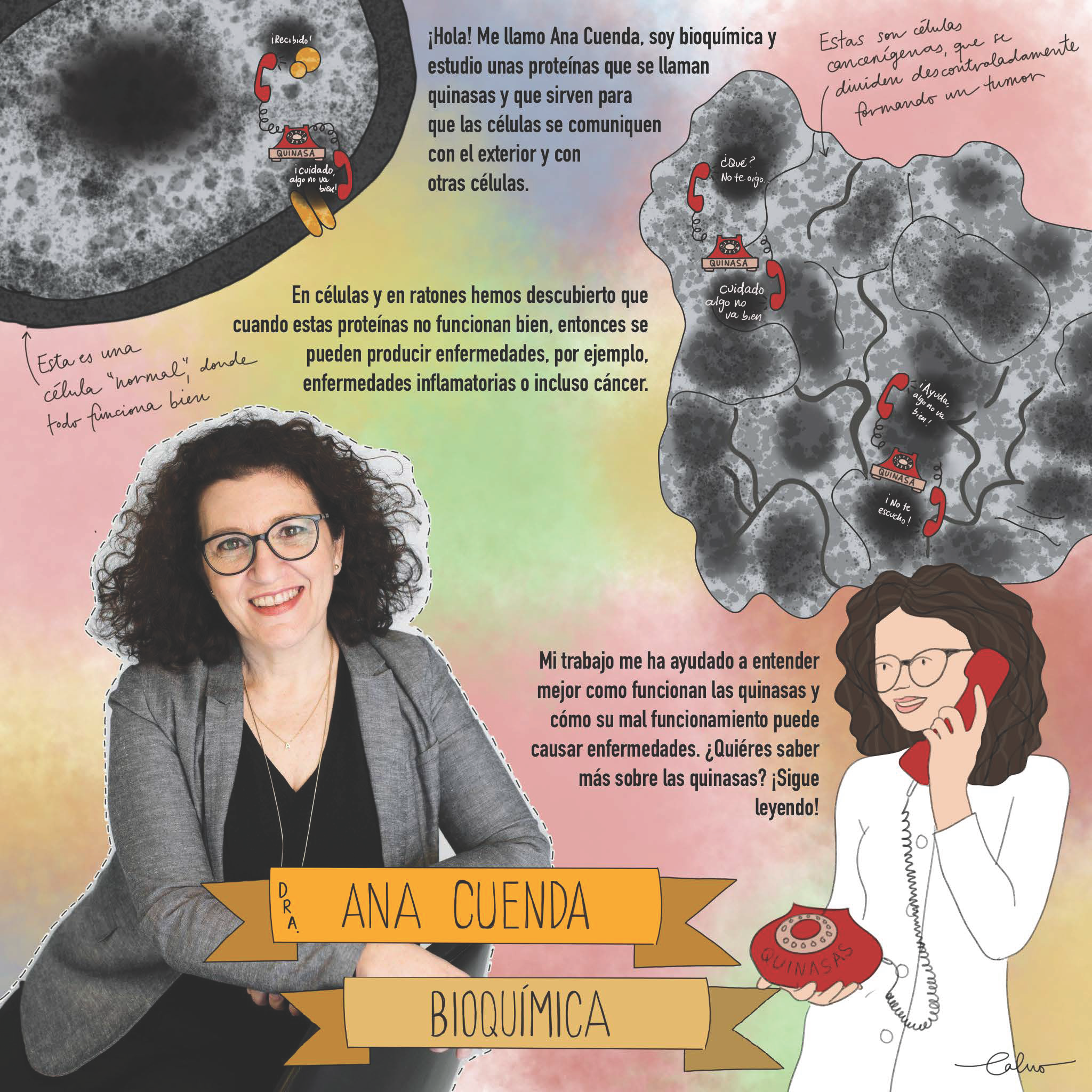
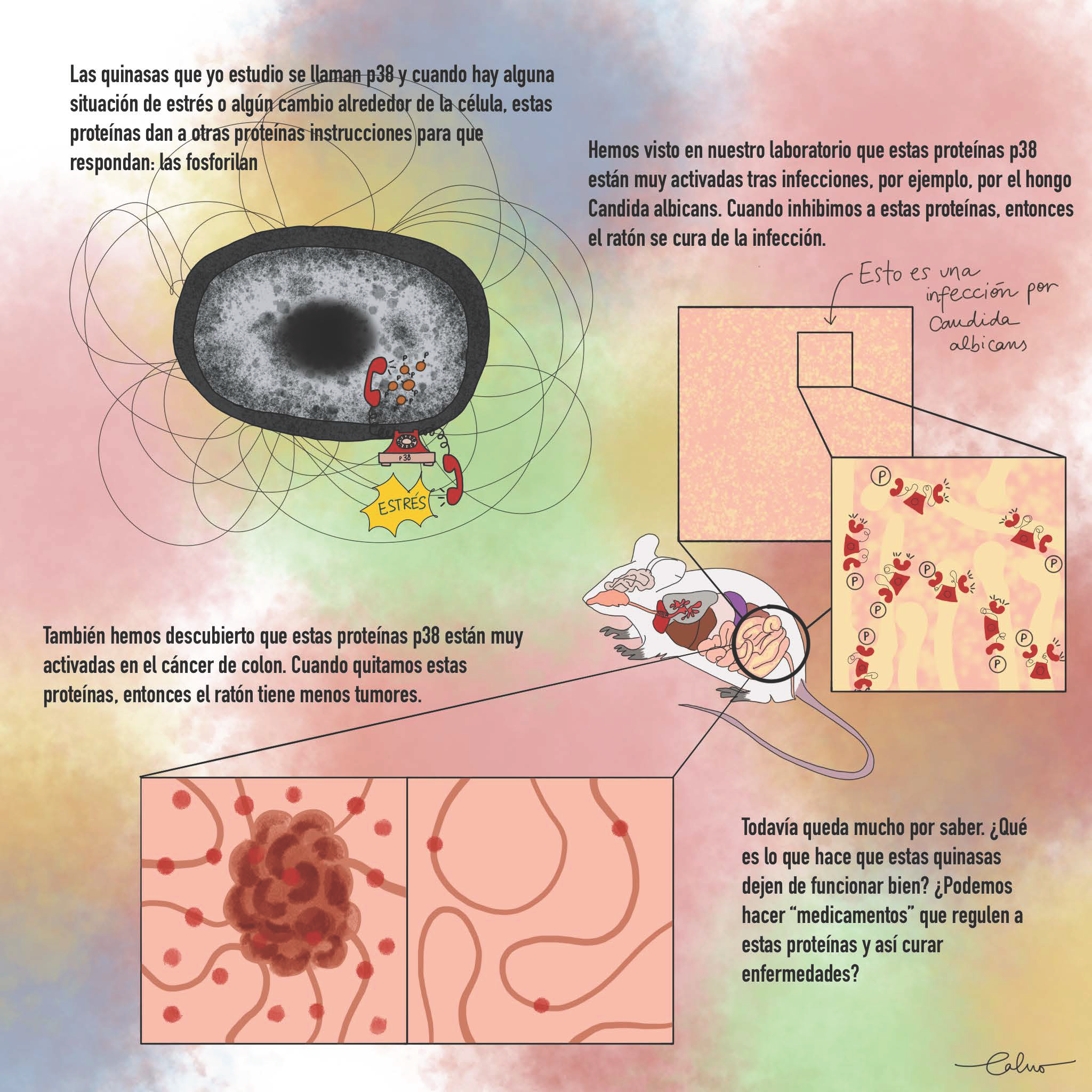
Susana de Lucas, Doctora, Viróloga y actualmente responsable de la Unidad de Cultura Científica del CNB, ha sido dibujada por Alicia Calvo-Villamañán
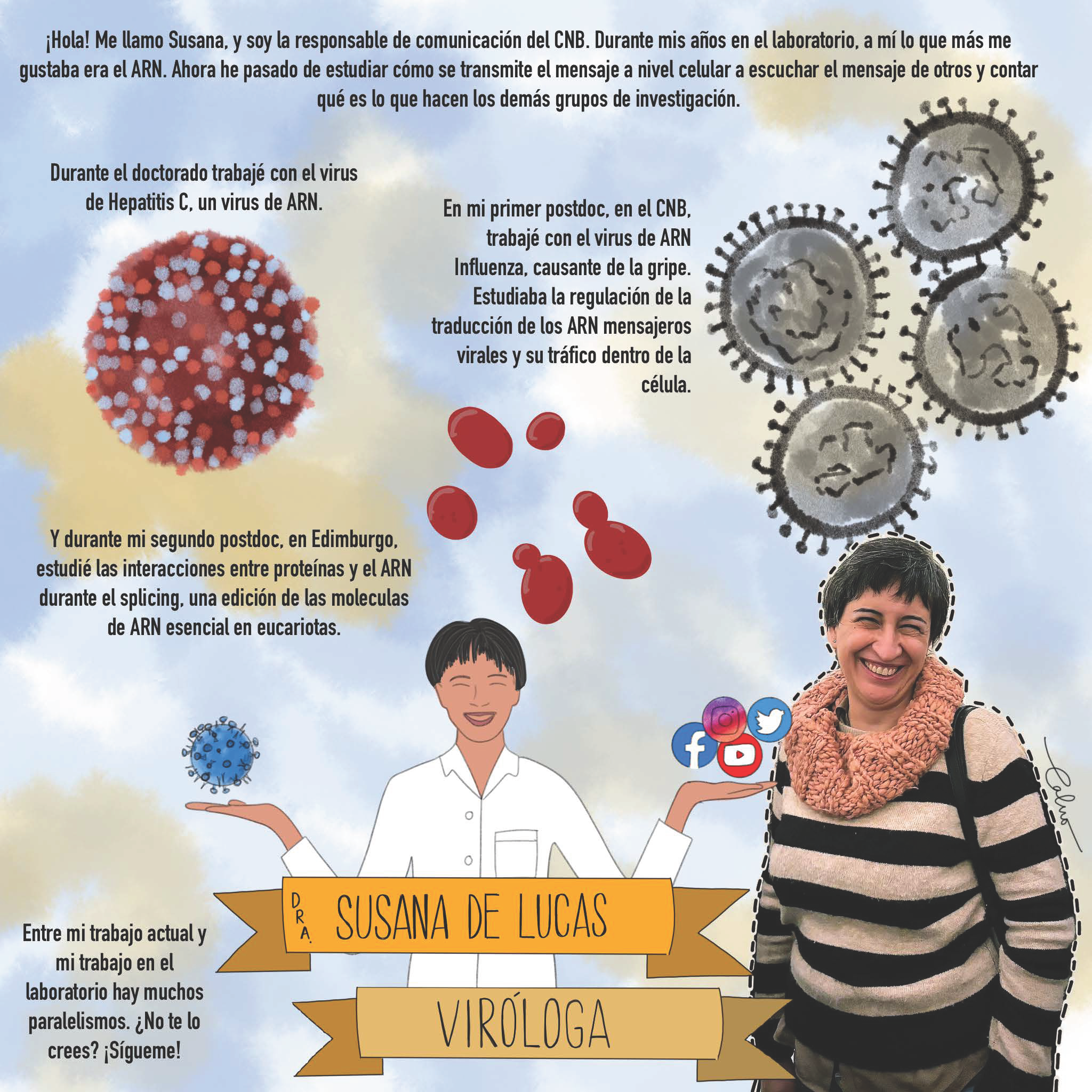
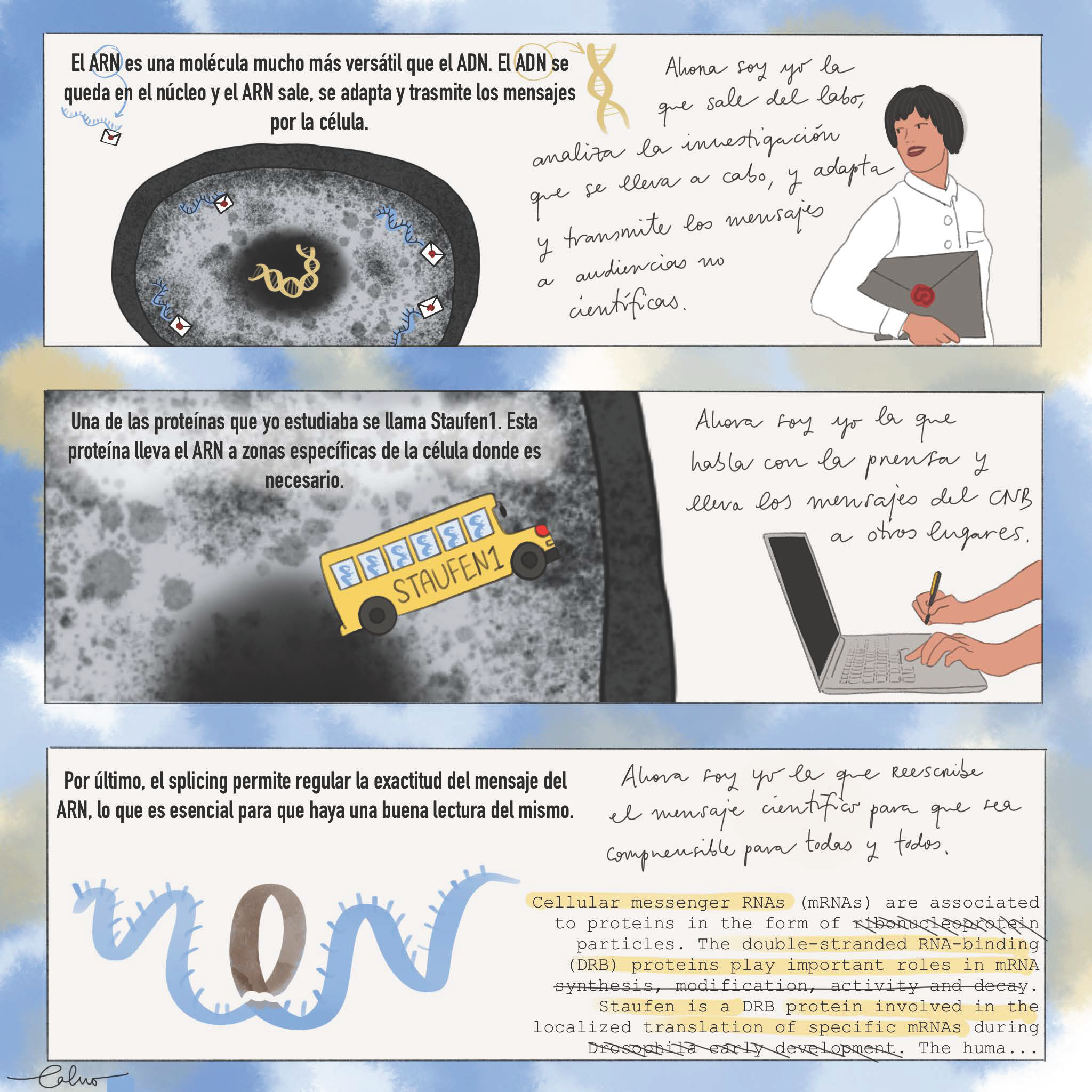
#11F - Día Internacional de la Niña y la Mujer en la Ciencia
Silvia Ayora es investigadora del departamento de biotecnología microbiana. El principal objetivo de su grupo de investigación es estudiar los mecanismos moleculares responsables de mantener la estabilidad del genoma utilizando un sistema “sencillo” modelo, como es la bacteria gram positiva Bacillus subtilis. El mantenimiento de la estabilidad del genoma es esencial para todos los organismos y depende en gran medida de la copia fiel del DNA, proceso llevado a cabo por el replisoma, un conjunto de proteínas con distintas actividades y que trabajan de modo coordinado.Sin embargo, el daño continuo de los genomas, hace necesario en todos los organismos la presencia de proteínas de reparación especializadas, capaces de prevenir los efectos deletéreos que la permanencia de dichos daños podrían provocar. Mediante el análisis bioquímico ayudamos a entender mejor cómo proteínas que están conservadas de bacterias al hombre pueden contribuir al mantenimiento de la estabilidad del genoma.
Esther Ortega es investigadora del departamento de estructura de macromoléculas. Nuestro grupo de investigación está centrado en entender los mecanismos moleculares que mantienen la integridad del genoma en células eucariotas durante la replicación del ADN, usando desde técnicas bioquímicas, biofísicas a técnicas estructurales. Tanto la replicación del ADN como la transcripción del ARN son dos procesos esenciales para la función celular y la transmisión de la información genética a las células hijas; por tanto, debe existir una eficiente coordinación entre estos dos procesos. Cuando estas dos maquinarias se encuentran en la misma región del genoma, se producen conflictos de replicación-transcripción (TRCs), que suponen una grave amenaza para la estabilidad del genoma.
Nuestro grupo está interesado en descifrar el papel de varios factores que están implicados en la prevención y resolución de estos TRCs, desde helicasas, factores de replicación, entre otros. Para ello, aplicamos técnicas estructurales como cristalografía de rayos-x o crio-microscopia electrónica de complejos proteicos que nos permite obtener detalles a nivel molecular y comprender sus mecanismos moleculares.
Las protagonistas de 2023
Amelia Nieto es viróloga y ha trabajado durante años en los mecanismos de interacción del virus de la gripe con la célula infectada. Su grupo de investigación en el CNB ha sido un referente internacional en el estudio de la ARN-polimerasa viral, el complejo de proteínas virales que se encarga de la multiplicación del genoma del virus. Para ello, este complejo también utiliza proteínas celulares de las que se aprovecha durante la infección, y el grupo de Nieto ha estudiado las funciones de algunas de estas proteínas, ya que podrían ser una buena diana para fármacos que frenen la infección viral.
Además, durante la copia del genoma, se producen errores que generan mutaciones en los nuevos virus. Esto, que podría suponer una desventaja para el virus, en algunas ocasiones conlleva cambios que mejoran la multiplicación del virus o que amplían el tipo de células a las que puede infectar. De ahí que sea importante determinar cómo las mutaciones afectan a la virulencia.
Carmen Castresana es profesora de investigación en el CNB-CSIC, y su objeto de estudio podría parecer muy diferente al de Nieto: Arabidopsis thaliana, una planta que se utiliza como modelo en genética vegetal. Sin embargo, Castresana investiga también cómo las plantas se defienden de infecciones, en este caso, bacterianas en vez de virales. Las plantas han desarrollado mecanismos de defensa similares a nuestro sistema inmune y, en este proceso, las oxilipinas son moléculas fundamentales cuyo papel está estudiando el grupo de Castresana. Su investigación ha ayudado a entender mejor cómo reaccionan las plantas ante la infección bacteriana, un conocimiento importante para la salud vegetal con un gran impacto en el sector agrícola y en definitiva, la economía del país.
La colección se irá ampliando en el futuro con las aportaciones de otras grandes científicas del CNB.

